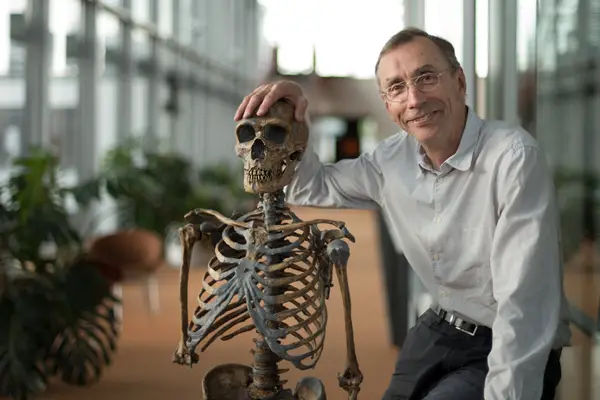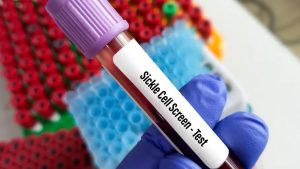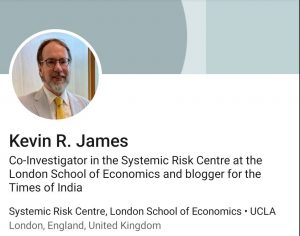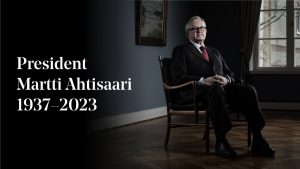Svante Paabo was awarded the 2022 Nobel Prize in Physiology or Medicine on Monday. The prize was given to the Swedish geneticist “for his discoveries concerning the genomes of extinct hominins and human evolution.”
Thomas Perlmann announced the award at the Karolinska Institute in Stockholm, Sweden. Paabo’s work first gained attention in 2010, when he developed methods for studying the DNA of ancient Neanderthal bones, according to CNN.
Here’s a list of 5 modern-day winners of Nobel Prize in medicine:
Also Read| Nobel Prize 2022: 3 lesser-known facts about the award
David Julius and Ardem Patapoutian
American scientists David Julius and Ardem Patapoutian were awarded the 2021 Nobel Prize in Medicine for their discoveries of temperature and touch receptors, which the award-giving body said could pave the way for new painkillers.
The Nobel Assembly at Sweden’s Karolinska Institute stated that their findings “have allowed us to understand how heat, cold, and mechanical force can initiate nerve impulses that allow us to perceive and adapt to the world around us.”
Harvey J. Alter, Charles M. Rice, and Michael Houghton
The Nobel Prize in Physiology or Medicine was awarded to Harvey J. Alter, Charles M. Rice, and Michael Houghton in 2020 for their discovery of the Hepatitis C virus, a breakthrough that the Nobel Assembly described as a “decisive contribution” that “made possible blood tests and new medicines that have saved millions of lives.”
Hepatitis, or liver inflammation, can be caused by a variety of factors, including viral infections such as Hepatitis A, which can be transmitted through contaminated food and personal contact, and Hepatitis B, which can be transmitted through blood, sperm, or other body fluids.
Also Read| Nobel Prize 2022: Medicine first, economics at the end; full schedule
However, Harvey J. Alter quickly discovered that Hepatitis A or B did not account for all cases of hepatitis in patients who had received blood transfusions, referring to these as “non-A, non-B” hepatitis.
William G. Kaelin, Peter J. Ratcliffe and Gregg L. Semenza
William G. Kaelin, Jr. is an American scientist best known for his research on tumour suppressor genes and proteins, as well as his role in identifying the molecular mechanisms that allow cells to detect and adapt to changes in oxygen levels. His discoveries about cellular oxygen-sensing mechanisms earned him a share of the Nobel Prize in Physiology or Medicine in 2019. (shared with British physician and scientist Peter J. Ratcliffe and American physician and scientist Gregg L. Semenza).
James P. Allison and Tasuku Honjo
The 2018 Nobel Prize in Physiology or Medicine was shared by James P. Allison and Tasuku Honjo “for their discovery of cancer therapy through inhibition of negative immune regulation.”
James P. Allison conducted research on a protein that inhibits the immune system. He saw the possibility of disengaging the brake and allowing our immune system to assault malignancies. He then transformed this idea into a revolutionary method of patient care.
Tasuku Honjo found a protein on immune cells concurrently, and after carefully examining its function, determined that it similarly functions as a brake, albeit through a different manner. His finding led to the development of treatments that have been remarkably effective in the fight against cancer.
Also Read| Nobel Prize 2022: Everything to know
Jeffrey C. Hall, Michael Rosbash, and Michael W. Young
Jeffrey C. Hall, Michael Rosbash, and Michael W. Young shared the 2017 Nobel Prize in Physiology or Medicine for “discoveries of molecular mechanisms controlling the circadian rhythm.”
The 2017 Nobel laureates discovered a gene that regulates the typical daily biological rhythm using fruit flies as a model organism. They demonstrated that this gene produces a protein that builds up in cells at night and is destroyed during the day. They later discovered other protein parts of this machinery, revealing the mechanism governing the self-sustaining clockwork within the cell. We now understand that multicellular organisms, including humans, have biological clocks that operate according to the same principles.







